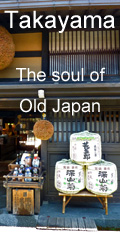| Japanese Language |
|---|
|
| | Vocabulary |
|---|
|
| | Resources |
|---|
|
| | Japanese schools |
|---|
|
| | Various |
|---|
|
|








|
|
Written by Maciamo
Japanese language is often qualified as vague. There are many reasons for that, such as the usual omission of the subject, the fact that most words have one or several homonyms, or the wider meaning of many words compared to European languages - especially, as we will see, those expressings feelings and emotions. Just a handful of words is sufficient to communicate basic human emotions (joy, sadness, fear, anger...), in situations where native English-speakers would use dozens of words nuancing each of them depending on the situation and intensity.
We could of course argue that Japanese is not such a poor language, vocabulary-wise. But I have always had the impression that Japanese people tend to use rather few different words in daily life compared to native English speakers.
| Featured book |
|---|
 
|
English is the richest language in the world (over 500,000 words, seven times more than French, and five times more than German), which is why Japanese people often have trouble finding an adequate translation with the right nuance fitting the context. Japanese could be called more convenient, as it requires less thinking or learning to be able to communicate efficiently. Having learned many languages myself, I was always surprised at how easy it was to understand some Japanese TV "drama" with so little vocabulary, something which would require a much larger vocabulary in many European languages.
If "everyday Japanese" (as opposed to seldom used classical or technical words) lacks the richness of vocabulary of English, intensity can be expressed in Japanese by adding an adverb like "very, extremely, incredibly, a little,..." (totemo, sugoku, chou, chotto...).
Positive feelings
楽しむ (tanoshimu)
Could be translated easily by "enjoy oneself", but in many cases, that sounds strange in English. We could also translate it by "having fun", "having a good time", "appreciate"...
The adjective "tanoshii" means therefore : fun, enjoyable, amusing, entertaining, relaxing, pleasant, likeable and so on.
嬉しい (ureshii)
- To be glad, happy, delighted, joyful, overjoyed, cheerful, pleased, contented, grateful, elated, jubilant, exultant, ecstatic, euphoric, enraptured thrilled (to bits), over the moon, in 7th heaven, on cloud nine, floating on air, on top of the world, tickled pink...
- It feels good, it's a great pleasure, it's heart-warming...
- It's nice, fantastic, wonderful, marvelous, sensational, brill(iant), first-class, top-notch, ace, magic...
喜ぶ (yorokobu)
to rejoice, to be delighted, glad, happy, pleased, cheerful, joly, ecstatic, euphoric... or any of the above in "ureshii", depending on the sentence. The main difference between "yorokobu" and "ureshii" is that the former is a verb and the latter and adjective, but the kanji is the same.
面白い (omoshiroi)
- fun, funny, comical, entertaining, amusing, interesting, humorous, hilarious, diverting, laughable, droll, ridiculous, witty...
Lots of dictionaries give very approximate translations. For example, "omoshiroi" is often translated as "interesting", which is I think a very misleading translation. I often hear Japanese people saying that they went to Disneyland or sing karaoke and that it was "interesting" when they really mean funny, amusing or entertaining. "omoshiroi" cannot be used for the most common meaning of "interesting", e.g. saying that a book is interesting, even if it's a book on the holocaust which is not funny at all.
Negative feelings
悲しい (kanashii)
- sad, sorrowful, depressed, blue, unhappy, miserable, gloomy, melancholic, mournful, downcast, dejected, despondant, disconsolate, woeful, doleful, forlorn, woebegone, wretched, in low spirits, low, downhearted, broken-hearted, sick at heart, grieving, down in the dumps/mouth/pits...
- depressing, unfortunate, sorry, unsetting, distresing, dispiriting, heart-rending, pitiful, pitiable, grievous, tragic, disastrous, calamitous, pessimistic, hopeless...
- deplorable, regrettable, pathetic, shameful, disgraceful...
There are a few other words than kanashii in Japanese :
- 哀れな aware(na) : miserable, sad, compassionate...
- 可愛そうな kawaisou(na) : poor, pitiful, sad, sorrowful, miserable...
- 惨めな mijime(na) : miserable, wretched,...
- 嘆かわしい nagekawashii : deplorable, regrettable, disappointing...
- 陰気な inki(na) : gloomy, melancholic, dismal, tenebrous, sombre, dreary...
- 落胆した rakutan shita : discouraged, disappointed, dejected, dispondent, down (in the dumps)...
Sometimes there are variants like 悲しげな "kanashige(na)" or 悲しそうな "kanashisou(na)" instead of 悲しい "kanashii", but the difference is of the kind of "pitiful" and "pitiable"; they are almost identical.
The other nuances can only be rendered wih adjectives, adverbs, verbs, etc. For example, "mournful" will be "kanashimi ni shizunda" , which literally translates as : "sunk in sadness". "Woeful" or "grievous" will be 悲しみに–桙ソた "kanashimi ni michita" , "filled with sadness". But it's always the word 悲しい "kanashii" that is used.
Lots of nuances are just impossible to render. The literary term "forlorn" means pitifully sad and lonely (at the same time).
Sometimes it's possible to create kanji compound with the few words above. 悲惨な (hisan-na) is a mix of "sad" and "miserable" and still means "miserable".
詰まらない (tsumaranai)
- insignificant, small, worthless, trifling, unimportant, shallow, superficial, trivial, petty, foolish, empty, frivolous...
In the expression "tsumranai mono desu ga,..." : This is a little something/small gift for you, it's not much, but...
With the meaning of "taikutsu":
- boring, dull, annoying, tiring, tiresome, disappointing, tedious, monotonous, uninteresting, unexciting, flat, unvaried, repetitious, humdrum, weary, wearisome, dry-as-dust, samey...
There are a few synonyms though :
単調な tanchou (na) = monotonous, unvaried
- あきあきする akiaki suru = to be sick, fed up, bored to death...
下らない (kudaranai)
This word is similar to "tsumaranai" above, but more with the idea of "worthlessness" than "boredom", like in the phrase "kudaranai koto wo iwanaide" (don't talk rubbish, stop with your nonsense, don't say stupid things...)
trivial, unimportant, worthless, pointless, contemptible, despicable, depraved,good-for-nothing, stupid, foolish, nonsense, bullshit, trash(y), etc.
怒る (okoru)
Always translated in dictionaries as "get angry" or "get mad" (AmE). There is a wide range of distinct emotions in English or European languages that is comprised in this term. There are few Japanese words to express all the nuances of :
- offended, displeased, vexed, incensed, exasperated, piqued, outraged, insulted, ruffled, disgruntled, irritated, upset, affronted, hurt, wounded...
We could say that only half of those are really common in English, but I can only think of 3 common in Japanese : "okoru", "iraira suru" and "mukatsuku". The 2nd refers to irritation, nervousness or basically being flustered, agitated, confused...
"Mukatsuku" also coneys the meaning of being sick (vomit), but is otherwise used to say that someone is irritated or offended. IMO, it's usually not strong and is a common response to little teasing. It then means "stop bothering me" or what an English-speaker would feel more inclined to reply : "f*ck you" (although it stays quite polite in Japanese).
There is another related expression that just means "to hurt someone's feeling" : kanjou wo gai suru . There is no adjective for "hurt, wounded.
Some dictionaries render "displeased" as 不快である (fukai dearu). 不快 (fukai) means "unpleasant", so "to be displeased" is just "something is unpleasant" in Japanese.
Midasu (乱す) can be used to say that somebody or something disturbs, bothers, annoys or irritates you.
Among the less common, 侮辱 (bujoku) means "insult, affront, contempt, slight..."
Everytime, there are so much more English words that it is very difficult to render nuances in Japanese, and vice-versa, when one Japanese word is used, it's difficult to choose the most appropriate translation that has the right connotation.
苛苛する/させる ira ira suru/saseru
- to be nervous, impatient, edgy, bothered, to lose one's temper, try one's patience, irritate, get on one's nerves, annoy, bother, ruffle, disturb, exasperate, pester, peeve, nettle, irk...
- Idioms : to drive up the wall, get one's back up, get up one's nose, rub up the wrong way, drive one bananas...
Popular Content on Wa-pedia.com
|